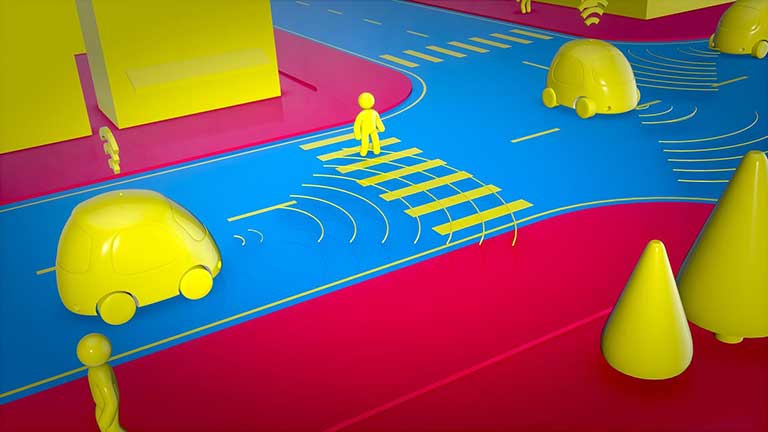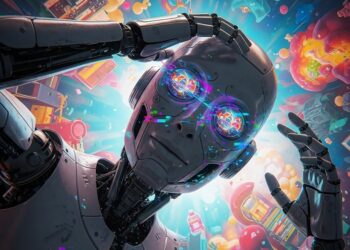Along with the rise of Artificial Intelligence-based personal assistance software like Google Assistant, Alexa, and Siri that can follow voice commands being conveniently available. Now AI-based applications are in vogue more than ever.
One of the reasons for the growing role of AI is the window of opportunities it possesses, for economic development and various industries like entertainment, healthcare, finance, transportation, and so on. Let us explore some of the reasons.
Facial-recognition on a hike

A facial recognition system involves using biometrics to map facial features from a current time visual namely, a photograph or video. It then compares it with the information within the database of known faces to find a match. In recent times facial recognition is on the rise with mobile companies integrating it, to unlock devices or social media platforms such as Instagram and Snapchat, providing their millions of users Lenses to customize their photos are all works of Augmented Reality and Artificial Intelligence.
Autonomous Vehicles

In the time of the pandemic, If you think wearing a mask can keep surveillance cameras from recognizing you, you are mistaken. Some high definition cutting-edge facial recognition systems can prove you wrong.
Self-driving cars, trucks, buses, and drone delivery systems, utilize the advanced technological capabilities of AI. As of 2016, over 30 companies are venturing into the creation of self-driving cars. A few companies in the works with AV include big Tesla, Google, and Apple. Many of whom have already started trials in the US, China, Germany, and Japan. While some countries are introducing laws to permit testing and operation of AV.
Although the Indian automotive industry contributes about 7.1% to the GDP and despite the progress of its global counterparts India still lags in this field of AV, because of the dilemma concerning the unemployment crisis it brings along.
Medical Research Assistance

Artificial Intelligence is assisting doctors from current data and diagnosis to future possibilities for inpatient high-risk patients. What differentiates traditional technologies from AI technology is the use of machine learning algorithms and deep learning to collect data, process and analyze it and provide a precise output.
An initiative by Google’s subsidiary DeepMind is working towards several partnerships in the UK, most notably with Moorfields Eye Hospital to develop advanced technologies to tackle the macular degeneration in ageing eyes. They are also working on machine learning algorithms that can detect differences between normal and cancerous tissues. Further, AI software is in demand to support operational initiatives. What is important to remember is that AI is supporting doctors, not replacing them.
E-commerce: A New Avenue
Machine learning allows e-commerce to utilize their customer’s information,  enables them to customize catalogues and personalize products according to their preferences. Hence companies can optimize their Marketing & Advertising. Even customer satisfaction and experience can be measured instantly by ratings and would create a conversation about the brand. Follow up Customer service with the help of chatbots are available 24/7 and professional compared to manual work.
enables them to customize catalogues and personalize products according to their preferences. Hence companies can optimize their Marketing & Advertising. Even customer satisfaction and experience can be measured instantly by ratings and would create a conversation about the brand. Follow up Customer service with the help of chatbots are available 24/7 and professional compared to manual work.
Studies predict global e-commerce will reach $4.2 trillion and make up 16% of the total retail sales by 2024 1 in every 5 customers are willing to purchase goods or services online. The eCommerce industry was reported at $24 billion in 2017 and is recognized as the fastest growing industry in India.
By 2018, Amazon beat Flipkart and recorded the biggest eCommerce in India in terms of revenue.
Entertainment and Gaming

Gaming software utilizes Machine learning techniques to classify a player’s behaviour and consequently adapt the game’s AI to enhance a player’s gaming experience, therefore, making games smarter than ever. There have been staggering progressions in 3D visualization techniques and simulations. Moreover, the incorporation of Virtual Reality and Augmented Reality in games has enabled game developers to create intelligent, visually appealing games which one would never envision 10 years back.
Trading and Investment

Algorithmic trading involves the use of complex AI systems to make trading-related decisions at speeds of magnitudes greater than any human is capable of, often making millions of trades in a day without any human intervention Several large financial institutions have invested in AI engines to assist with their investment practices.
According to a recent study by the U.K. research firm Coalition, electronic trades account for almost 45 per cent of revenues in cash equities trading. And while hedge funds are more reluctant when it comes to automation, many of them use AI-powered analysis to get investment ideas and build portfolios. It is difficult to predict the overall effects of AI on this market but it will result in more efficient markets with lower volatility.
Cyber Security

Artificial Intelligence can benefit cybersecurity with automated techniques to predict cyber threats and malware by analyzing large amounts of data. It can also provide effective security guidelines and help develop better prevention and recovery strategies.
According to a recent study, more than 90 per cent of US and Japan’s cybersecurity professionals expect attackers, use AI for the companies they are working for, according to a study by Webroot. As more and more companies are turning towards AI-based and machine learning products as part of their defence strategy, researchers are concerned that this could lead to a false sense of security for employees and IT professionals.
Even though humans are having intelligence they are not able to utilize it, to its full extent. In the future machines will be able to use 100% of their intelligence if we give them intelligence. In the future, machines will use 100% of their intelligence if we give them intelligence. AI does not categorize in good or bad. Yet, Artificial intelligence is truly redefining our path to the future.











